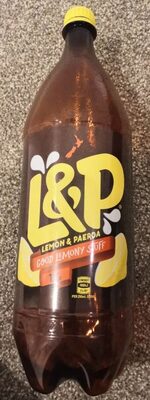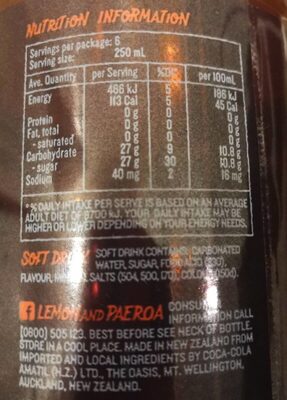L&P Lemon & Paeroa - - 1.5 l
This product page is not complete. You can help to complete it by editing it and adding more data from the photos we have, or by taking more photos using the app for Android or iPhone/iPad. Thank you!
×
Barcode: 9415087020031 (EAN / EAN-13)
Quantity: 1.5 l
Categories: Beverages and beverages preparations, Plant-based foods and beverages, Beverages, Plant-based beverages, Carbonated drinks, Fruit-based beverages, Sodas, Fruit sodas, Lemon soft drinks
Origin of ingredients: New Zealand
Manufacturing or processing places: New Zealand
Stores: Woolworths, Coles
Countries where sold: Australia, New Zealand
Matching with your preferences
Environment
Packaging
Transportation
Report a problem
Data sources
Product added on by kiliweb
Last edit of product page on by lcmortensen.
Product page also edited by archanox, gluten-scan, tasja, yuka.WnE4YUxKb3NndFlKbDhRRDNnbkZ3dU5ZbG8rQWVWdXVNdVVESVE9PQ.










